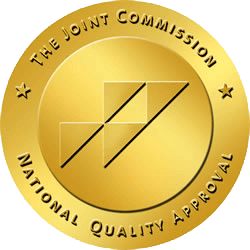Heroin use disorder may be less prevalent amongst teens than in previous years, but its use can lead to lifelong struggles and, in some cases, death. According to the National Survey on Drug Use and Health (NSDUH), less than one percent of teens have reported using heroin. Nonetheless, heroin use is rising—especially for people aged 18 to 25. This trend means parents must pay attention to their teens’ drug experimentation. If your teen is actively using heroin, there is no reason to ignore the signs of heroin abuse. It is in your teen’s best interest to get help and guidance, allowing them to navigate the drug use disorder. Seeking heroin abuse treatment in Southern California will provide the young adult in your life with the medical and mental health support necessary to help fight their substance use disorder.
5 Signs of Heroin Abuse
When a teen begins using heroin consistently, there are several signs that parents and other adults need to pay attention to provide their teen with the best possible support. The most common indications of heroin addiction are physical, behavioral, and health changes, mental health decline, and withdrawal symptoms. Below is a further discussion of signs to watch.
Physical Signs of Heroin Abuse
When teens begin using heroin routinely, there are indications based on their physical appearance. One of the most popular ways to use heroin is intravenous. Teens will have track marks on their arms or vein entry points when this happens. As a result, they will begin to wear long-sleeve shirts and pants throughout the year to conceal their bruised body.
- Other physical signs of heroin abuse include:
- Dry mouth
- Brief periods of hyperalert behavior followed by extreme exhaustion
- Shallow breathing
- Small pupils
Changes in Behavior
When teens begin using heroin frequently, their behavior transforms. This change occurs because as their drug use disorder grows, their focus is only on getting heroin and getting high. As their need for heroin grows, their behavior will change in the following ways:
- Avoiding eye contact
- Lacking motivation
- Lying or being deceitful
- Stealing money
- Slurred speech
- Poor academic performance
- No interest in extracurricular activities
- Volatile reactions to others—especially when confronted with their disorder
Effects on Health
In addition to physical and behavioral changes, one of the signs of heroin addiction is a decline in health. A healthy teen who all of a sudden is experiencing:
- Rapid and unexplained weight loss
- Diarrhea
- Loss of appetite
- Insomnia
- A runny nose without the presence of a cold or allergies
- Cuts and bruises associated with picking at their skin
- Infections at needle entry points, cuts, and bruises associated with picking at their skin
Mental Health Decline
Heroin abuse signs will also include a change in a person’s emotions. Increased heroin abuse changes the way neurochemicals in the central nervous system react. As a result, teens may experience depression, anxiety, and even paranoia. It is also not uncommon for teen users to appear disoriented or confused because their memory and ability to process information declines.
Withdrawal Symptoms
One of the greatest signs of heroin addiction is withdrawal symptoms. When teens do not have access to heroin, their bodies will begin to react negatively. Heroin withdrawal symptoms often include:
- Cold sweats
- Sleepiness
- Tremors
- Muscle pain
- Bone pain
- Depression
- Hallucinating
Withdrawal symptoms will begin six to twelve hours after last using heroin. The signs will begin to worsen within two to three days and can last up to a week following the last dose of heroin.
What Should Parents Do if there Are Heroin Addiction Signs?
Parents and other adults have a responsibility to pay attention to teens. Adolescence is a precarious period. Teens are realizing their identities and considering who they want to become. Without the proper guidance and support, their ability to navigate hardships will be difficult. If you notice there are signs of heroin addiction, it is best that you begin speaking with your teen about the consequences of using drugs.
Don’t Ignore Heroin Abuse Signs; Get Help with Destinations for Teens
When teens begin experimenting with heroin, they often do not realize that the potential to become addicted is ever-present. However, it is, and once an addiction has developed, it has the power to change an adolescent’s life forever. At Destinations for Teens, we help teens exhibiting heroin abuse signs make the right choices to live productive, drug-free lives. Our programs include individual, group, and family therapy options and a team of medical professionals. Contact us at 877.466.0620 to begin the journey to a heroin-free life.


